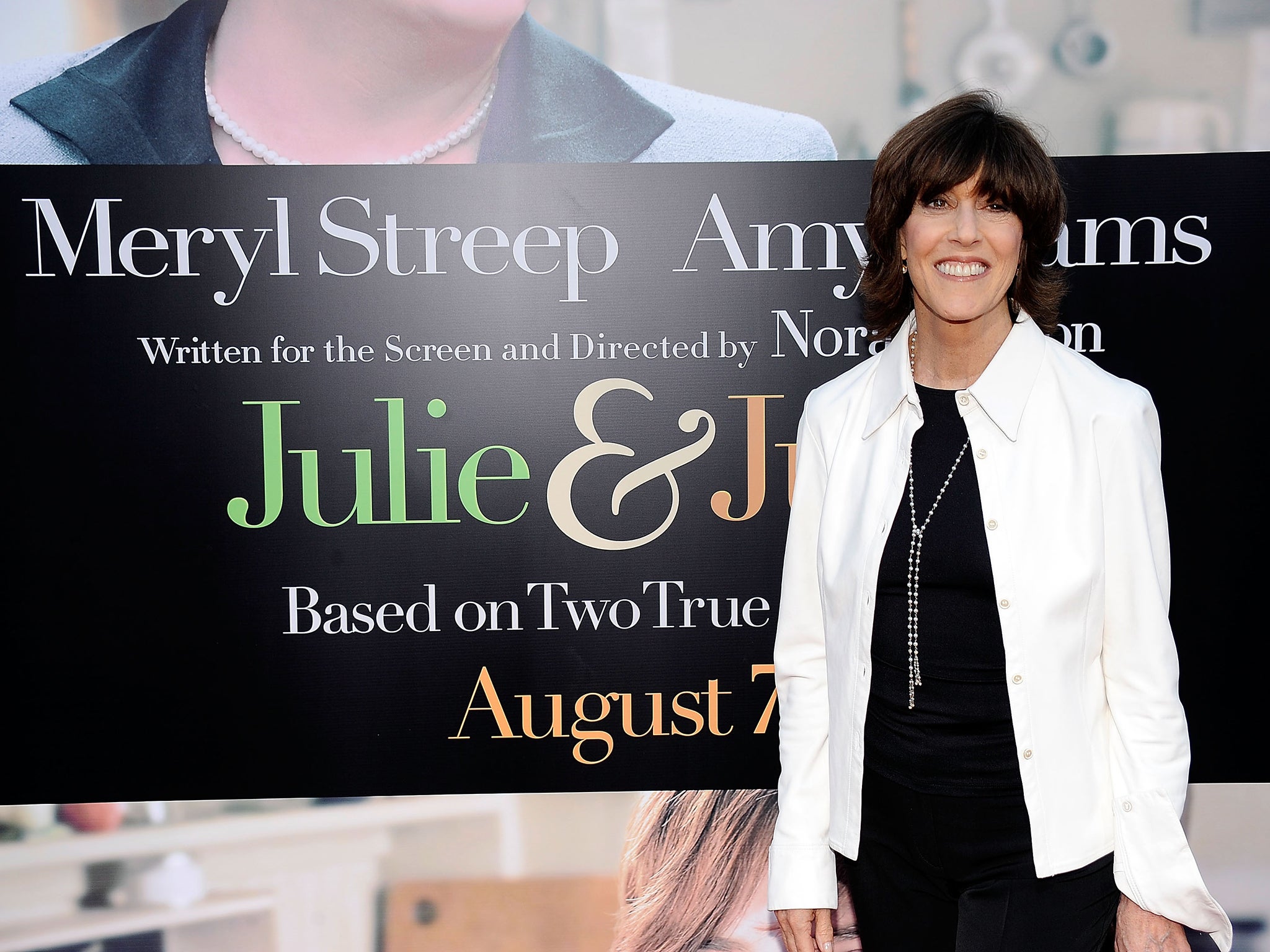The Most of Nora Ephron by Nora Ephron, book review: Author's witty love letter to the tabloids
They may be 40 years old, but articles about the cosy relationship between media owners and politicians, editorial ethics, celebrity coverage and conspiracy theories could have been written in the wake of Hackgate

Your support helps us to tell the story
From reproductive rights to climate change to Big Tech, The Independent is on the ground when the story is developing. Whether it's investigating the financials of Elon Musk's pro-Trump PAC or producing our latest documentary, 'The A Word', which shines a light on the American women fighting for reproductive rights, we know how important it is to parse out the facts from the messaging.
At such a critical moment in US history, we need reporters on the ground. Your donation allows us to keep sending journalists to speak to both sides of the story.
The Independent is trusted by Americans across the entire political spectrum. And unlike many other quality news outlets, we choose not to lock Americans out of our reporting and analysis with paywalls. We believe quality journalism should be available to everyone, paid for by those who can afford it.
Your support makes all the difference.How does one write a review of The Most of Nora Ephron?
How does one sum up in 500 words a collection that covers a career that excelled in not one but seven professions? Journalist, essayist, playwright, food writer, novelist, screenwriter, film director/producer: Nora Ephron hit paydirt in them all.
Judging by this collection, Ephron would resort to anecdotes: maybe one about her parents’ dinner guests; or about how rapping with a famous film director about sex and relationships evolved into one of the biggest films of the 1980s; or by sharing tittle-tattle that corrodes the Food Establishment.
But, Ephron could do that: her parents’ guests were people like Dorothy Parker; the screenplay was When Harry Met Sally; and, though she regarded journalism as notes by a “wallflower at the orgy”, she was close enough to the Establishment to hear the whispers.
The problem with an anthology such as this is that, no matter how sparkling, when work produced years apart is clustered together, one cannot help but notice the invisible stitching. And that is a pity, because however repetitive the technique, The Most of Nora Ephron reveals a writer of rare talent in each of her chosen fields. Though the book includes samples of her screenwriting, plays and blogs, journalism dominates. As Ephron had a hand in choosing the collection before her death aged 71 in 2012, it also shows where her heart lay. Much gold is to be found in journalism that on the surface seems dated – particularly when covering 1970s US politics or feminism. But her prescience about the dissolution of journalism in the face of 24-hour news and social media is striking.
They may be 40 years old, but articles about the cosy relationship between media owners and politicians, editorial ethics, celebrity coverage and conspiracy theories could have been written in the wake of Hackgate. Elsewhere, a seething dissection of Deborah Schiff – who sold the New York Post to Rupert Murdoch – shows that the decline of tabloid journalism into celebrity sleaze and “lifestyle” began long before the Dirty Digger got his hands on the world’s biggest daily papers. Her final play, Lucky Guy, produced in full, is an elegy to a world of hard-nosed tabloid journalism.
But while the collection reveals the deep passions that motivated Ephron – political and personal – she never descended into the raw thuggery of polemic. Even her 1983 roman à clef, Heartburn, the first chapter of which is produced here, is wry and self-deprecating rather than angry – quite an achievement given its basis in her bitter divorce from the Watergate reporter Carl Bernstein.
In the final years of her life Ephron worked on The Most of Nora Ephron with her editor Robert Gottlieb. It was, he says in a brief introduction, intended as a celebration rather than memorial. But to this reader at least, it feels more like an elegy, written with characteristic humour and insight, for a profession she loved and saw decline.
Danuta Kean is books editor of Mslexia
Join our commenting forum
Join thought-provoking conversations, follow other Independent readers and see their replies
Comments